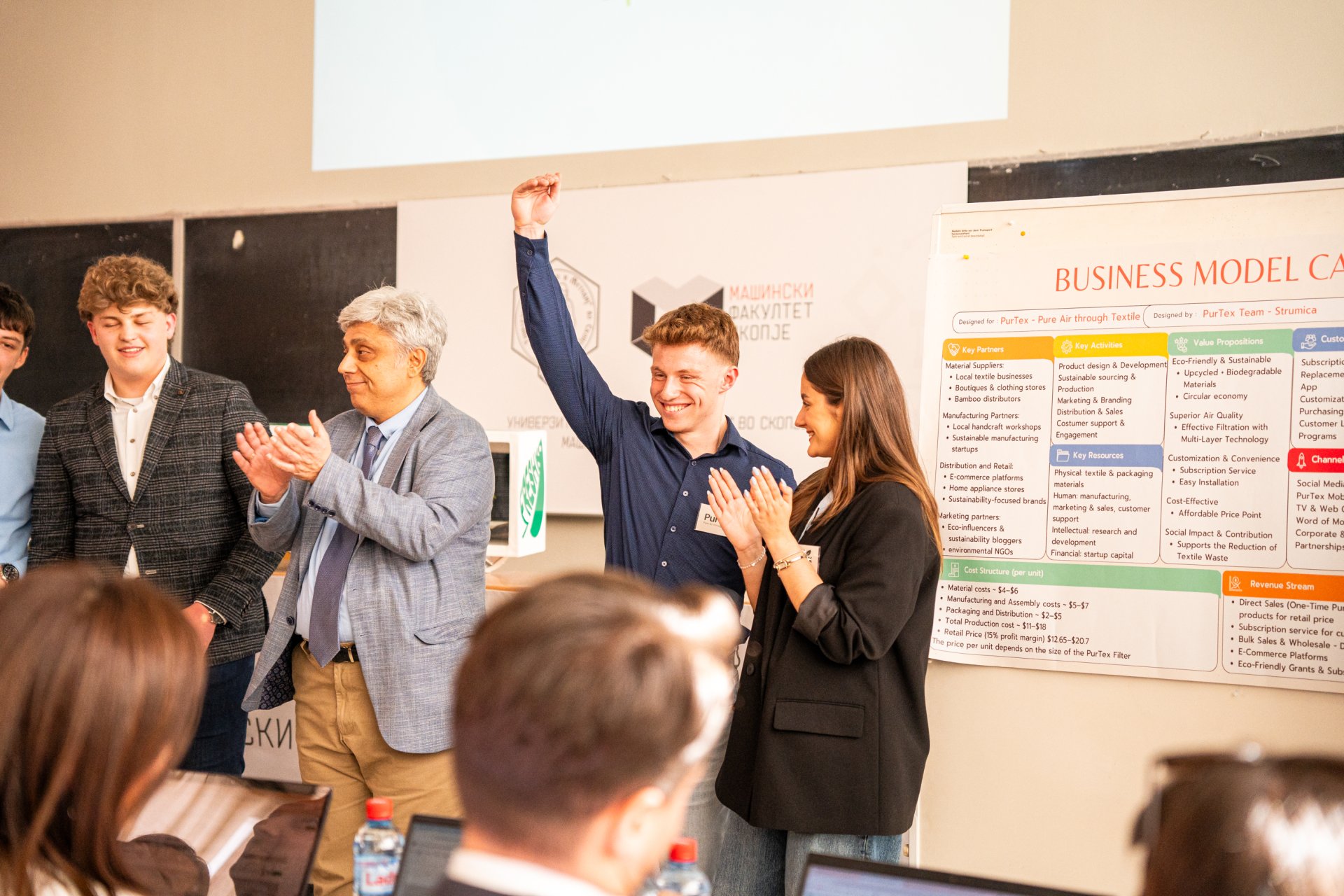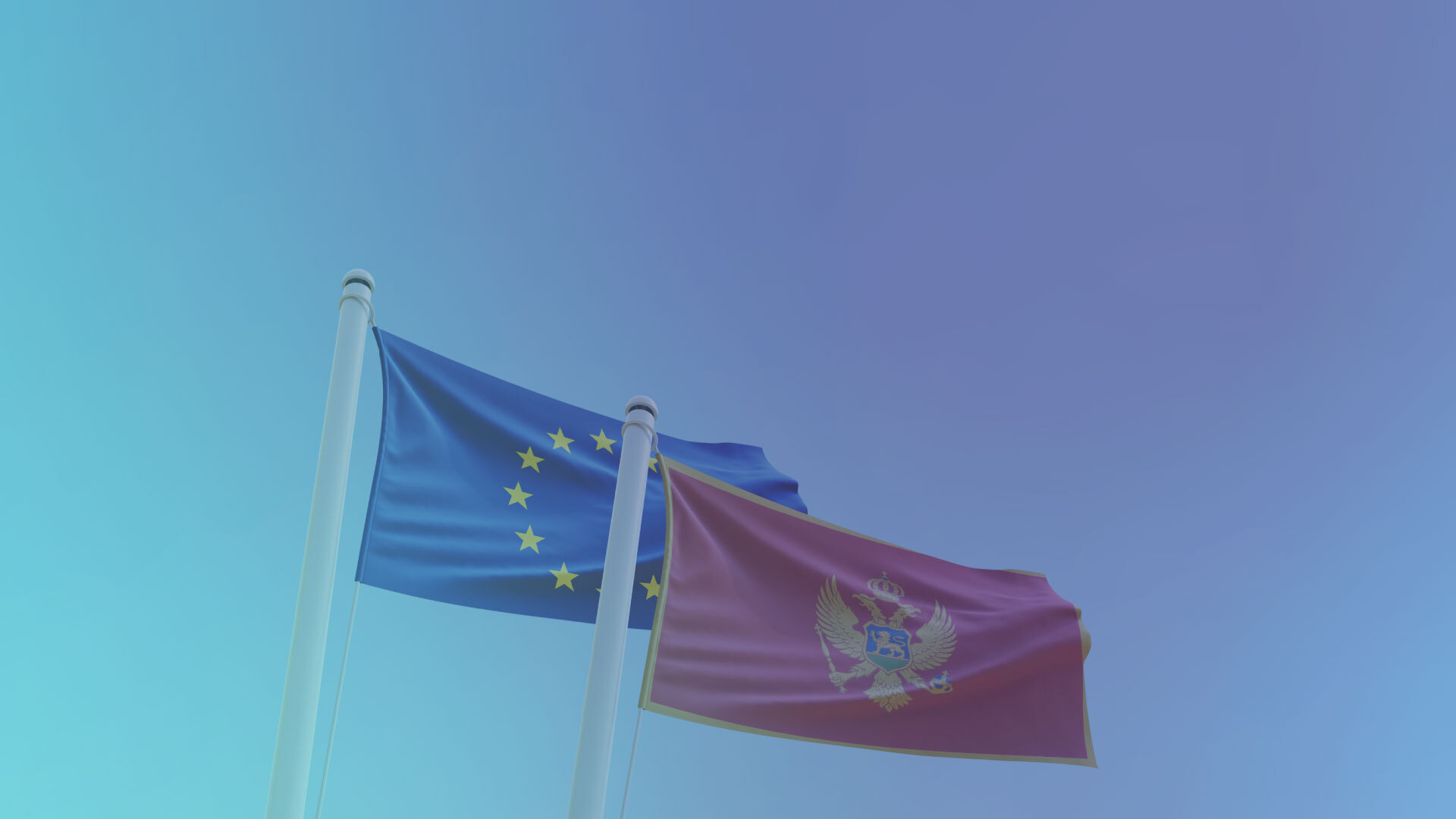Disinformation gets clicks, facts build trust
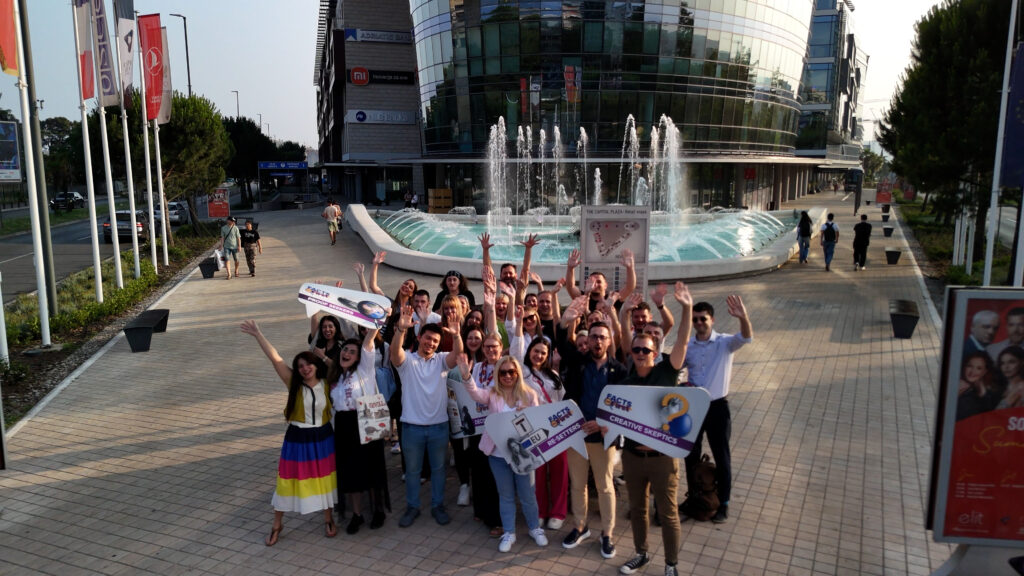
Disinformation gets clicks, facts build trust
Podgorica, 13 June 2025: “We came long way from Economy of money to Economy of information, than to Economy of attention down to Economy of emotions. Today we have Economy of trust. The key shift is no longer asking “Is it true?” but “Do I trust the source?”—a question that demands we build critical thinking, digital literacy, communication, collaboration, empathy, and compassion”. With this words Ioana Avadani a media expert from Romania opened Facts Content Lab in Podgorica, that is taking place as a part of DG ENEST WeBalkans media literacy campaign “Facts Come First”.
The Lab offered a rare opportunity for journalists, influencers, fact-checkers, and content creators from across the Western Balkans to come together and share local perspectives on disinformation. They explored how this phenomenon affects everyday life in the region and highlighted the importance of factual accuracy, critical thinking, and informed civic participation.
“Disinformation isn’t merely about spreading falsehoods, it’s about controlling public discourse and undermining democratic values. Countering disinformation protects democracy, promotes informed decision-making, and ultimately leads to stronger, media-literate societies,” said Raluca Costache, Team leader of WeBalkans Programme and added “Through the Facts Come First campaign, we emphasize that disinformation thrives on confusion and facts bring clarity. A fact based perspective on EU accession allows citizens of the Western Balkans to critically assess information and reject false narratives.”
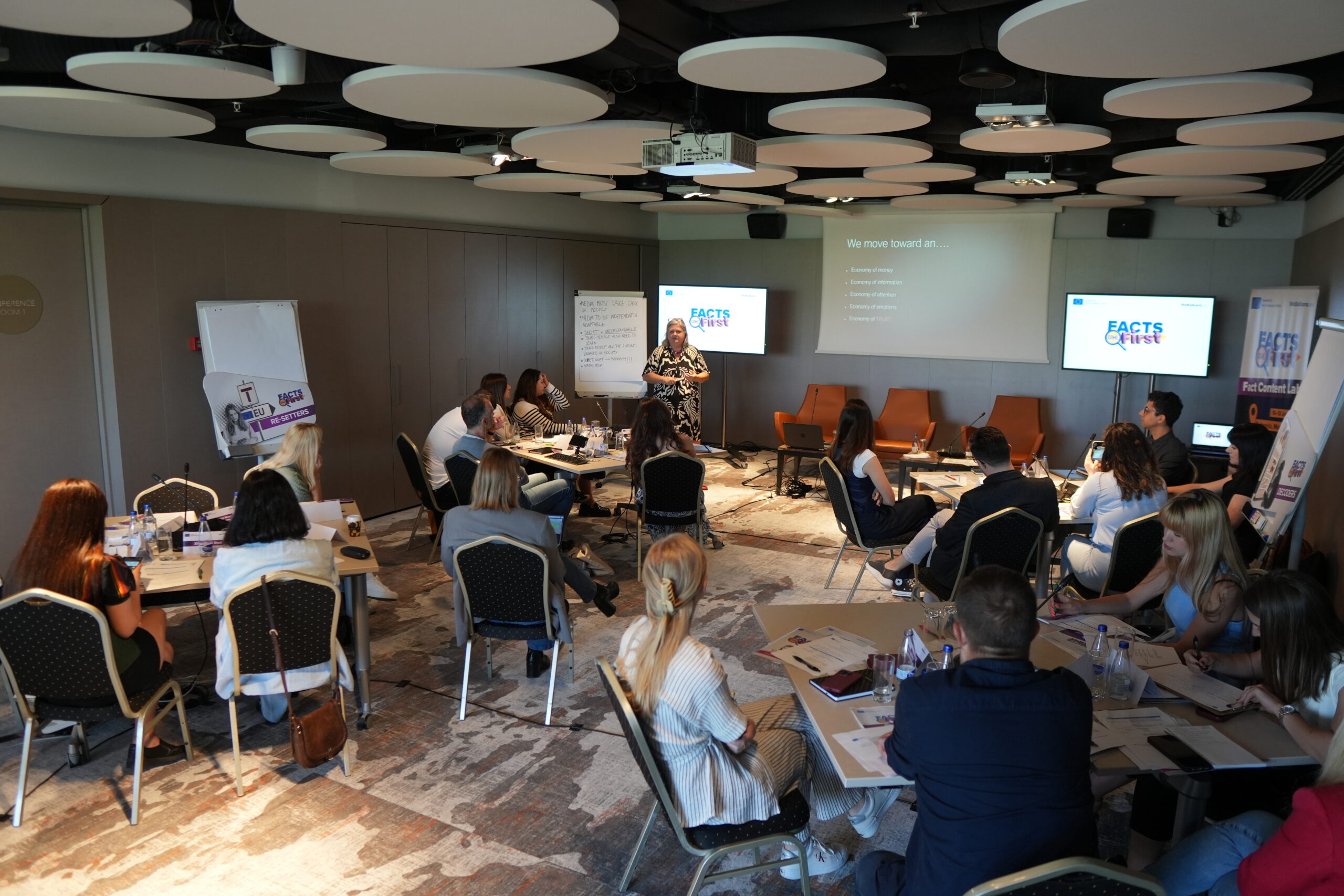
A key thematic focus of the Lab was the debunking of common misconceptions about EU accession. Participants discussed how content creators, especially journalists can unpack false narratives and offer audiences of both, EU Member States and the Western Balkans a clearer understanding of the EU accession process.
Also, one of the most interesting segment was projecting the “future of truth”. Participants explored what might impact the truth in 2040. AI-generated news emerged as both, a challenge and a lens through which the role of humans was reasserted. And it was concluded- AI may assist, but human empathy will lead, because people will always need people.
“When reporting and trying to verify sources and claims, you become aware not only of the speed at which disinformation spreads, but also of the sheer volume of it in public discourse—and how deeply it shapes public opinion. Our task is not only to correct false information, but also to regain people’s trust, letter by letter, story by story,” said journalist Dejan Šajinović, Nezavisne novine.
Across the event, participants explored how to counter disinformation in fresh and impactful ways. Working in dynamic teams, they developed creative multimedia contents designed to resonate with audiences and promote credible, fact-based sources.
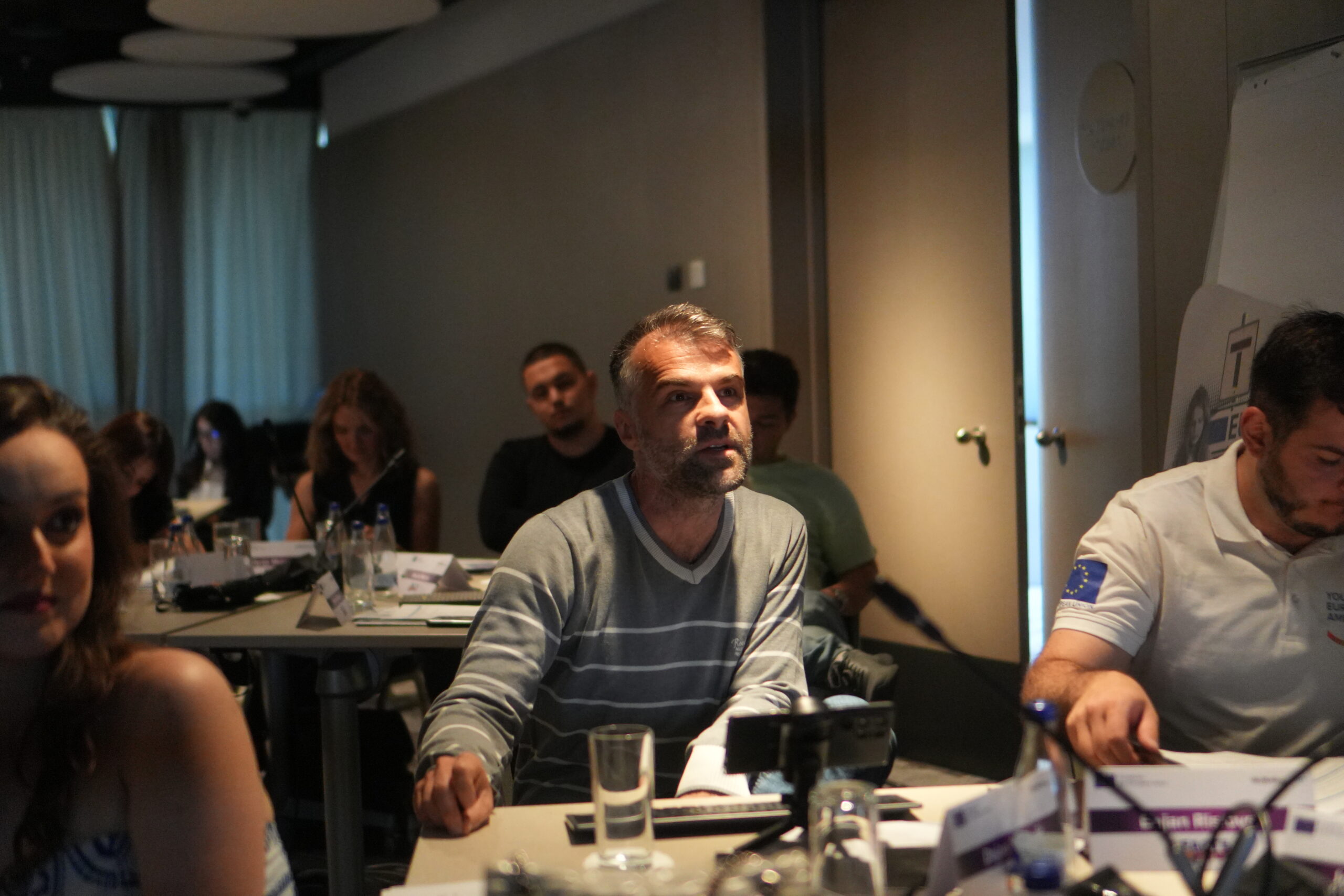
“As an influencer, I believe it’s most important to remain true to who I am in real life. I’m not just someone who talks about books—I use my platform to share real opinion and contribute to meaningful conversations in Albanian society, always verifying sources and checking facts. Just like with book reviews—you can’t talk about a book by telling a different story. On social media, honesty should be your goal if you want to build a long-term relation with audience that truly trusts you,” said Xhorxhina Roci, an influencer..
In addition to AI-driven disinformation the participants examined persuasive techniques, biased reporting, and native advertising, which increasingly blur the line between information and manipulation.
In that context the importance of fact checking was highlighted as a process that is not just about catching falsehoods—it’s about slowing down the hype in public space so truth has time to catch up. In a sea of viral content, the role of fact checkers is to bring evidence back into focus.
The Lab also underlines the need for creating better conditions for strengthening independent and professional media environment. Through support for media integrity, fact-checking initiatives, and media independence, the EU seeks to reinforce public trust in credible journalism across the Western Balkans.
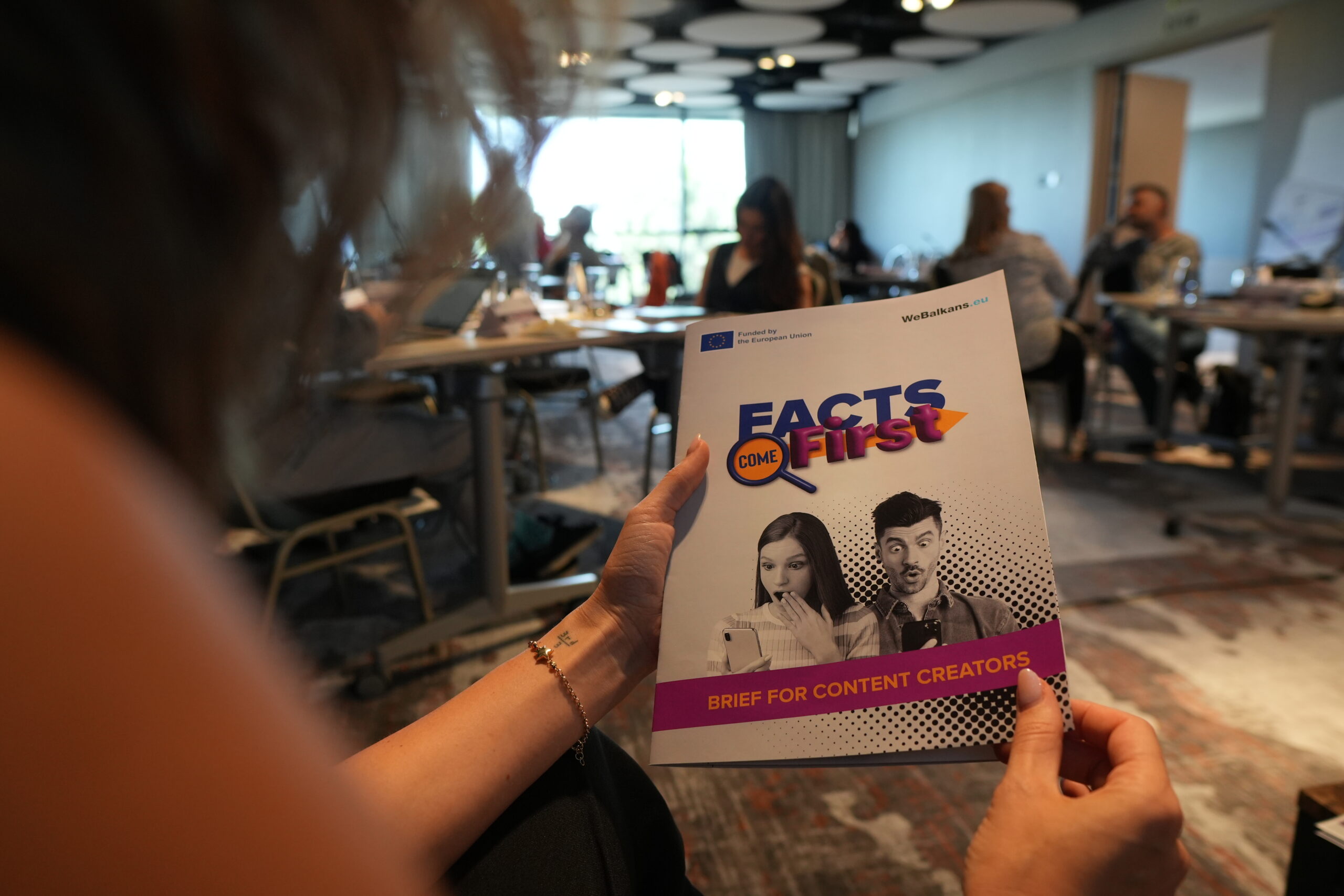
“Fighting disinformation isn’t only about presenting facts—it’s about rebuilding trust. People need to believe not just in the accuracy of information, but in the integrity of those who share it. Trust is the bridge between truth and understanding, and without it, facts can fall on deaf ears.” – said Avadani
Three intensive days of production resulted in content ready for publication: videos, reels, articles, and social media stories that reflect not only the views of journalists, influencers, fact-checkers, and content creators on the topic of disinformation, but also the way they would communicate about it with their audiences.
For more information, visit the web page of the Disinformation Campaign

